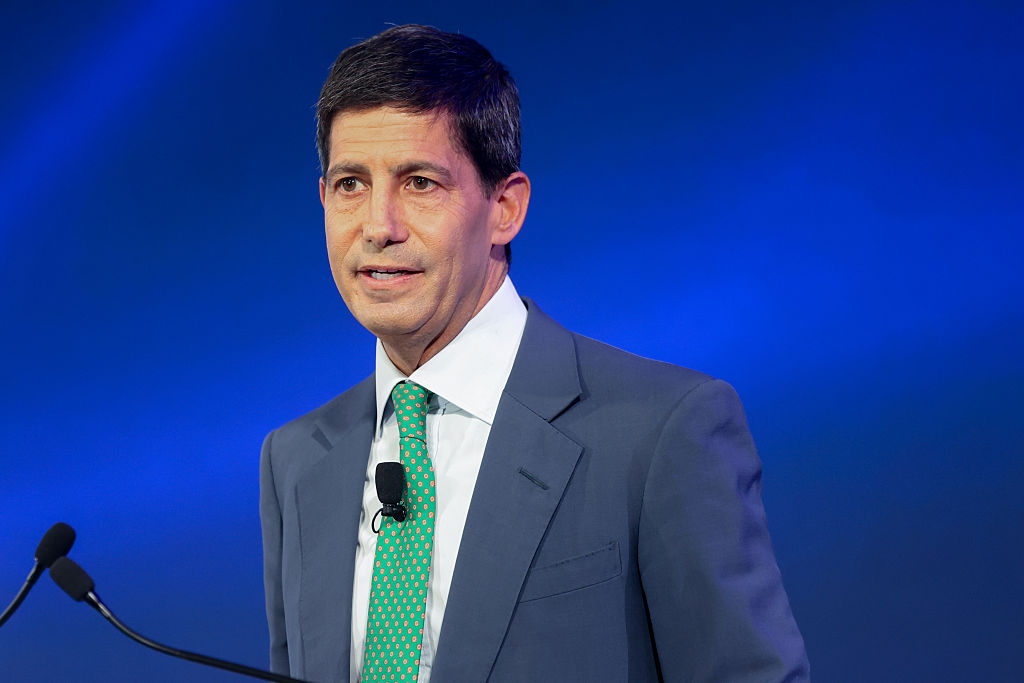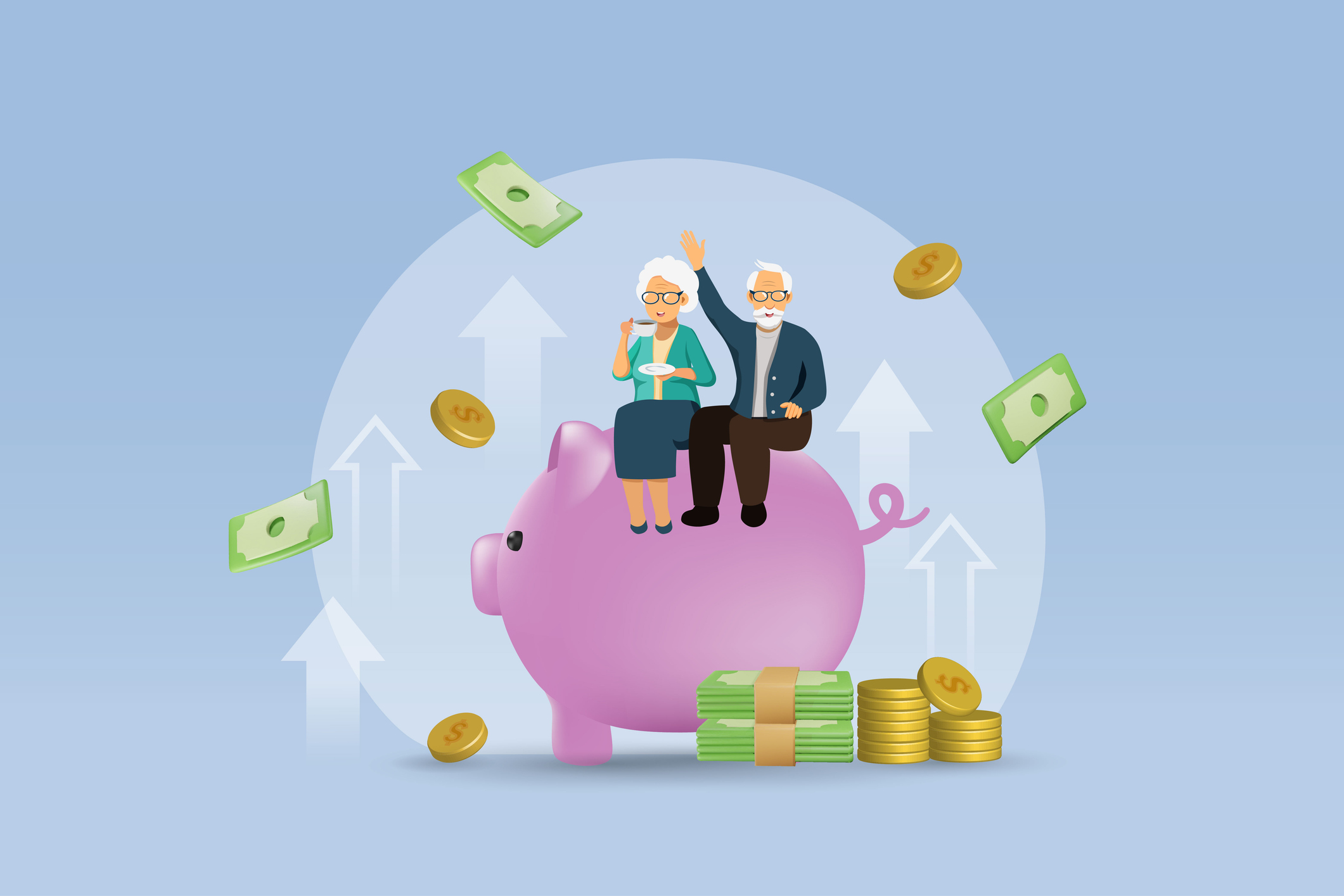High-Yield Savings Accounts Luring Spenders. Should You Move Your Cash?
High-yield savings accounts are offering rates as high as 5.33%, drawing 3 in 5 Americans to save rather than spend, new survey shows.


Profit and prosper with the best of Kiplinger's advice on investing, taxes, retirement, personal finance and much more. Delivered daily. Enter your email in the box and click Sign Me Up.
You are now subscribed
Your newsletter sign-up was successful
Want to add more newsletters?

Delivered daily
Kiplinger Today
Profit and prosper with the best of Kiplinger's advice on investing, taxes, retirement, personal finance and much more delivered daily. Smart money moves start here.

Sent five days a week
Kiplinger A Step Ahead
Get practical help to make better financial decisions in your everyday life, from spending to savings on top deals.

Delivered daily
Kiplinger Closing Bell
Get today's biggest financial and investing headlines delivered to your inbox every day the U.S. stock market is open.

Sent twice a week
Kiplinger Adviser Intel
Financial pros across the country share best practices and fresh tactics to preserve and grow your wealth.

Delivered weekly
Kiplinger Tax Tips
Trim your federal and state tax bills with practical tax-planning and tax-cutting strategies.

Sent twice a week
Kiplinger Retirement Tips
Your twice-a-week guide to planning and enjoying a financially secure and richly rewarding retirement

Sent bimonthly.
Kiplinger Adviser Angle
Insights for advisers, wealth managers and other financial professionals.

Sent twice a week
Kiplinger Investing Weekly
Your twice-a-week roundup of promising stocks, funds, companies and industries you should consider, ones you should avoid, and why.

Sent weekly for six weeks
Kiplinger Invest for Retirement
Your step-by-step six-part series on how to invest for retirement, from devising a successful strategy to exactly which investments to choose.
In the face of high interest rates, consumers are parking their cash in the bank to capitalize on higher yields instead of spending money. Credit unions and small banks offer the best value for disciplined savers.
A recent WalletHub survey of 300 respondents uncovered changing savings and banking behaviors in response to the current high-interest rate environment. Although rising interest rates make borrowing more expensive, it also means consumers are likely to benefit from higher interest rates as they accumulate savings balances.
As of October 2023, the top-earning high-yield savings accounts are paying as much as 5.33%, a multi-year high.
From just $107.88 $24.99 for Kiplinger Personal Finance
Become a smarter, better informed investor. Subscribe from just $107.88 $24.99, plus get up to 4 Special Issues

Sign up for Kiplinger’s Free Newsletters
Profit and prosper with the best of expert advice on investing, taxes, retirement, personal finance and more - straight to your e-mail.
Profit and prosper with the best of expert advice - straight to your e-mail.
Savvy savers have taken the rise in rates as a signal to slow spending with 3 in 5 Americans spending less due to higher rates. Considering that a separate WalletHub survey tracked a 270% increase in savings account rates and a 191% increase in checking account rates over the past year, consumers have ample incentive to park their money in the bank.
The majority of people surveyed (56%) are keeping a tight hold on their cash by stashing more away in their bank accounts compared to last year to take advantage of higher yields.
You can use our tool, in partnership with Bankrate, to compare the best high-yield savings rates available now.
Small banks and credit unions offer better value
Earlier this year, a series of bank failures rocked the banking world across five months and shook consumer confidence. This major event may have influenced the general sentiment around smaller financial institutions. In WalletHub’s 2023 Banking Survey, 46% of respondents were hesitant about putting their money in small banks and credit unions. The other 54% weren’t hesitant at all.
If you’re skeptical about using small banks and credit unions, it could be costing you money. The 2023 Banking Landscape Report found that credit union checking accounts are 82% cheaper than national banks with interest rates 27 times higher on average.
If your primary concern is getting the highest yield on your money, you certainly wouldn’t want account fees cutting into your returns. That’s where credit unions and small banks excel. Credit unions had the lowest average account fee index at $14 compared to national, regional, community, and small banks. Small banks were the second lowest at $37 in average fees while national banks topped the charts at an average of $79.
Growing debt cuts into consumer spending as well
Although Americans are spending less and saving more, 1 in 2 still have more debt than savings. Considering total household debt reached $17.06 trillion in the second quarter, the added debt burden is likely another factor alongside inflation and other economic concerns contributing to the drop in spending.
As consumers lean towards saving as a priority, they’re less interested in credit card interest rates. According to the Banking Survey, 56% of respondents were more interested in the interest rates on bank accounts compared to 44% being interested in the rates on credit cards.
Related Content
Profit and prosper with the best of Kiplinger's advice on investing, taxes, retirement, personal finance and much more. Delivered daily. Enter your email in the box and click Sign Me Up.

Seychelle is a seasoned financial professional turned personal finance writer. She’s passionate about empowering people to make smart financial decisions by combining 10 years of finance industry experience with solid research and a wealth of knowledge. Seychelle is also a Nav-certified credit and lending expert who has explored money topics such as debt consolidation, budgeting, credit, and lending in her work for publications including GOBankingRates, LendEDU, and Credible.
-
 The New Reality for Entertainment
The New Reality for EntertainmentThe Kiplinger Letter The entertainment industry is shifting as movie and TV companies face fierce competition, fight for attention and cope with artificial intelligence.
-
 Stocks Sink With Alphabet, Bitcoin: Stock Market Today
Stocks Sink With Alphabet, Bitcoin: Stock Market TodayA dismal round of jobs data did little to lift sentiment on Thursday.
-
 Betting on Super Bowl 2026? New IRS Tax Changes Could Cost You
Betting on Super Bowl 2026? New IRS Tax Changes Could Cost YouTaxable Income When Super Bowl LX hype fades, some fans may be surprised to learn that sports betting tax rules have shifted.
-
 3 Reasons to Use a 5-Year CD As You Approach Retirement
3 Reasons to Use a 5-Year CD As You Approach RetirementA five-year CD can help you reach other milestones as you approach retirement.
-
 4 Psychological Tricks to Save More in 2026
4 Psychological Tricks to Save More in 2026Psychology and money are linked. Learn how you can use this to help you save more throughout 2026.
-
 Trump Nominates Kevin Warsh to Fed Chair. How Will This Impact Savers?
Trump Nominates Kevin Warsh to Fed Chair. How Will This Impact Savers?Here's a look at how Warsh could influence future Fed policy if he's confirmed.
-
 Why Your Bank Suddenly Lowered Your APY — And What to Do Next
Why Your Bank Suddenly Lowered Your APY — And What to Do NextWhy banks lower APYs, options you can explore when it happens and whether more rate cuts are on the horizon.
-
 Do You Have a CD Maturing Soon? Here's What to Do Next
Do You Have a CD Maturing Soon? Here's What to Do NextThese strategies of what to do when you have a CD maturing soon will have you maximizing returns even with rate cuts.
-
 How to Open and Maintain an Online Savings Account Safely
How to Open and Maintain an Online Savings Account SafelyOnline banks offer generous APYs that most brick-and-mortar banks can't match. If you want to make the switch to online but have been hesitant, I'll show you how to do it safely.
-
 Here's How Much You Can Earn with a $100,000 Jumbo CD
Here's How Much You Can Earn with a $100,000 Jumbo CDYou might be surprised at how fast a jumbo CD helps you reach your goals.
-
 Online Banks Still Lead on Rates, But Is Switching Worth it Now?
Online Banks Still Lead on Rates, But Is Switching Worth it Now?As interest rates trend down, online banks keep an edge on yields, but service, access and flexibility still matter. Here’s how the trade-offs stack up.